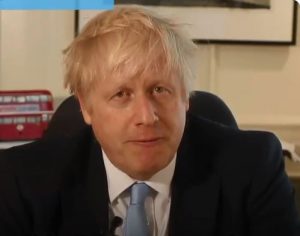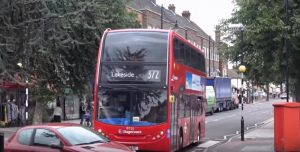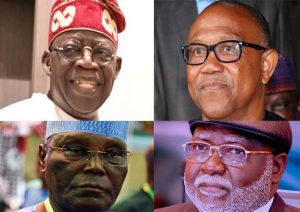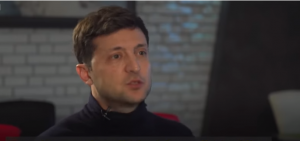![On the 24 July 2016, after 43 years, the UK voted to Leave the European Union with 51.8% [more than 17.4 million of the total votes]](https://unicpress.com/wp-content/uploads/2016/07/Vote-Leave.-Brexit.png)
BBC: Theresa May has condemned abuse of MPs following last week’s Brexit vote.
The prime minister said despite “strongly held views” on both sides of the Commons there was no place for threats of violence and intimidation.
Several Conservative MPs have received abusive messages and tweets because of their views on Brexit.
Speaker John Bercow said MPs were public servants doing what they thought to be right and were “never mutineers, traitors nor enemies of the people”.
Two of the MPs who rebelled against the government last week, Anna Soubry and Nicky Morgan, said they had contacted the police about threats they received.
Ms Soubry suggested dossiers of material she had handed to the Speaker showed a direct link between newspaper headlines attacking her views and actions on Brexit and threats of violence against herself.
“This is serious stuff,” she said. “We have to call it out…I believe in freedom of the press but everyone has a responsibility not to incite abuse and death threats.”
As she ended her statement on last week’s EU summit, Mrs May said it was right to debate Brexit with “passion and conviction”.
“But there can never be a place for the threats of violence and intimidation against some members that we have seen in recent days,” she said. “Our politics must be better than that.”
In a Commons statement shortly afterwards, Home Secretary Amber Rudd said the “bullying and demeaning” actions of a small minority of people was a reminder there was a “dark, unpleasant underbelly of society”.
While she said she personally did not check her Twitter timeline any more, she said young people who “lived on” social media must be able to continue to do so safely.
Responding for Labour, shadow home secretary Diane Abbott said there was a case for “punitive fines” for social media firms which do not promptly act on abusive material, including rape and death threats.
The Daily Mail, which was criticised for publishing the photos of the 11 Tory MPs who voted against the government last week under the headline “Proud of Yourselves?”, said its journalists also received violent abuse on social media and it was committed to “tackling this menace”.
“No one has been more outspoken than the Daily Mail in condemning the viciousness of social media, and in particular the threats and abuse directed at politicians of all parties,” a spokesman said.
“What must never happen is that it is used as an excuse to prevent proper and trenchant debate on the great political issues of the day, including Brexit.”
EU trade options
In her statement, Mrs May also said the agreement secured at the summit to move talks on to the UK and EU’s future relationship was “an important step in delivering the smooth and orderly Brexit people voted for”.
The prime minister also insisted the UK could secure a “bespoke” trade deal with the EU after Brexit despite the EU’s chief negotiator suggesting this cannot happen.
Labour’s Jeremy Corbyn said the agreement on what had been negotiated so far had been “cobbled together” with a “vagueness” that “underlines the sharp divisions within the cabinet”.
The UK voted to leave the European Union in June 2016 and Brexit is due to happen at 23:00 GMT on 29 March, 2019.
Ministers thrash out Brexit plan
Mrs May’s statement to MPs came after she and her senior ministers formally discussed for the first time what the UK’s long-term relationship with the EU should be.
Until now the two negotiating teams have only been discussing “divorce” issues like how much money the UK owes.
BBC assistant political editor Norman Smith said there was a “clear divide” between ministers, with some like Chancellor Philip Hammond and Home Secretary Amber Rudd calling for the UK to stick closely to the EU’s single market to preserve access for British firms.
On the other side others, like Foreign Secretary Boris Johnson and Michael Gove, want more divergence so the UK has more freedom to strike its own trade deals with other countries.
What happens in the meantime?
After the UK leaves the EU in March 2019, but before the final “end state” is reached, the government wants a temporary “implementation period” of about two years.
This is what negotiations are expected to focus on in the coming weeks.
Mrs May told MPs she wants “access to one another’s markets” to continue “as now” during this period.
The UK will also negotiate, and “where possible” sign, trade deals, which would kick in after the end of the implementation period, she said.
She also said that during this period the UK will register people arriving from the EU to prepare for the new border controls promised after Brexit.
The EU’s negotiating position makes clear that it expects the UK to observe all of its rules – including on freedom of movement – and accept the jurisdiction of the European Court of Justice during the implementation, or transition, period.
‘Lose-lose scenario’
On Monday there was a warning from the EU side that whether a transitional arrangement will happen at all is not guaranteed.
Mr Barnier’s senior adviser Stefaan De Rynck said the EU hoped for a “withdrawal treaty” to be drawn up by October 2018, giving time for it to be agreed by politicians.
He added: “In that withdrawal treaty there could be a transitional arrangement, transition period, implementation period, which the prime minister refers to.
“That is not a given today, let’s be very clear about that.”
Describing Brexit as a “lose-lose” scenario, he added: “For us, I don’t think we will ever label Brexit a success. It’s a mutual weakening, I think, of two parties.”
But former Conservative leader Iain Duncan Smith, a key Leave campaigner, said the UK should be looking beyond the EU for trading relationships in the future.
“It’s not a case of less trade, it’s a case of a different type of trade, and British business will have to learn, as they do, to get by in a different world,” he said.




